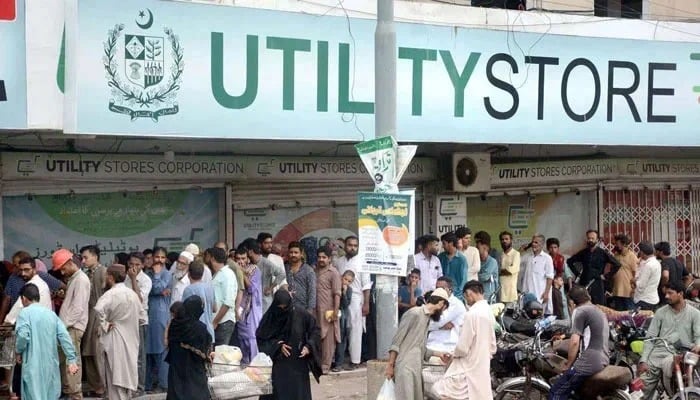
ISLAMABAD: The Economic Coordination Committee (ECC) has approved a financial package worth Rs30.216 billion to formally shut down the Utility Stores Corporation (USC), directing authorities to ensure a transparent and well-structured closure process.
The summary, presented by the Ministry of Industries and Production, detailed the settlement of employee dues, welfare measures, and disposal of assets. According to the ECC’s decision, USC’s assets will be sold within the current financial year, and expenses linked to the closure will be met from the proceeds.
Employee Protection and Compensation
The ECC underlined that safeguarding employee rights will remain the top priority. It instructed immediate payment of salaries, arrears, and compensation to all staff members. Reports suggest that while around 12,000 workers may lose their jobs, nearly 300 key employees will stay temporarily to manage the privatisation process of USC.
Current Losses and Liabilities
The Utility Stores Corporation has been facing a loss of Rs23 billion, while pending payments to private suppliers stand at Rs14 billion. To address this, the government will clear dues and liabilities in three phases, ensuring systematic settlement and protection of stakeholders.
Government’s Transition Plan
The decision to close USC is part of the government’s strategy to reform subsidy distribution and reduce financial inefficiencies. The shutdown, which became effective on July 31, officially halted all procurement and sales activities. Inventory is being shifted to central warehouses, while IT systems and other assets will be auctioned in a transparent manner.
Prime Minister Shehbaz Sharif has also ordered the launch of a Voluntary Separation Scheme (VSS) to provide relief to employees affected by the closure.
Shift to Targeted Subsidies
With the end of USC’s decades-long subsidised retail operations, the government plans to channel social support through the Benazir Income Support Programme (BISP), which is being strengthened as the country’s main social protection platform.
End of an Era
Established in the 1970s, the Utility Stores Corporation once served millions of low-income households by providing subsidised essentials like flour, sugar, and cooking oil. However, years of mismanagement, poor service delivery, and growing financial losses sealed its fate.
The ECC meeting was chaired by Finance Minister Muhammad Aurangzeb and attended by federal ministers including Rana Tanveer Hussain and Jam Kamal Khan, while Energy Minister Awais Leghari joined online.
The closure of Utility Stores marks a significant shift in Pakistan’s subsidy framework, as the government moves from general subsidies to more targeted welfare schemes to ensure efficiency and transparency.










